Nettle syrup with honey
Revitalize your blood, strengthen your immunity – naturally!
Nettle syrup with honey is considered a true elixir that invigorates and rejuvenates the body: detoxifying, tonic, combats anemia, stress, ... Nettles generally support the fight against any degenerative processes.
Servings: 30 servings
30 lingurițe (o linguriță fiind o porție)
Ingredients
Materials
-a jar (400g )
Preparation
 Wash well and then finely chop the nettles.
Wash well and then finely chop the nettles. Put the chopped nettles in a jar so that they are 3 quarters full.
Put the chopped nettles in a jar so that they are 3 quarters full. Fill the remaining volume with liquid bee honey, stirring constantly with a wooden spoon, so as to homogenize the preparation as well as possible.
Fill the remaining volume with liquid bee honey, stirring constantly with a wooden spoon, so as to homogenize the preparation as well as possible. Close the jar and leave to soak for 30 days.
Close the jar and leave to soak for 30 days. After maceration, the mixture is filtered through a strain.
After maceration, the mixture is filtered through a strain. Thus, a very healthy dense greenish syrup is obtained, which is poured into a jar, which is then sealed with a lid.
Thus, a very healthy dense greenish syrup is obtained, which is poured into a jar, which is then sealed with a lid. The syrup is ready. In this step, the mixture left after filtration is still concentrated and that's why I do a second filtration with water, so I can extract as much of the maceration as possible.
The syrup is ready. In this step, the mixture left after filtration is still concentrated and that's why I do a second filtration with water, so I can extract as much of the maceration as possible. A thinner syrup is thus obtained, which is also stored in a jar with a lid.
A thinner syrup is thus obtained, which is also stored in a jar with a lid. At the end we have 2 jars of syrup, one densely concentrated and one thin, obtained by filtering with water.
At the end we have 2 jars of syrup, one densely concentrated and one thin, obtained by filtering with water.
The syrup is kept cold.
Administration
As a treatment (allergies, autoimmune diseases), take 4-5 teaspoons of syrup a day for 1-2 months.
Nettle cures are recommended, spring and autumn, followed by the consumption of nettles in various forms.
Observations
Iron is the most important element in the formation of hemoglobin. Nettles also contain: calcium, calcium salts, silicon, phosphates.
Effects and benefits
- detoxifying (nettle being rich in chlorophyll, helps eliminate toxins from the body)
- tonic, strengthens the body's natural resistance
- vitaminizing (vitamin A, vitamin B1 and B2, vitamin C, vitamin K) and remineralizing (iron, potassium, magnesium, silicon, phosphates, calcium salts)
- stimulant of blood circulation
- fights against anemia
- fights against stress
- anti-tumor
- protects the eyes (vitamin A)
- supports the nervous system (rich in vitamins B1 and B2)
- helps increase immunity
- beneficial in the fight against rheumatism and arthritis
- beneficial for urinary disorders
- helps treat benign prostatic hypertrophy
- kidney stones
- treatment of hemorrhoids
- purifies the blood
- Significantly reduces allergy symptoms
- prevents hair loss, strengthens hair, prevents dandruff
- nettles are generally good for fighting any degenerative processes (helps to regenerate tissues)
- asthma, bronchitis, cough
- stimulation of bile, pancreatic, gastric and intestinal secretions
Side effects
- Allergic reactions to nettle or honey, manifested by itching, hives, stuffy nose or breathing difficulties (rare, but possible).
- Mild gastric irritation in some sensitive individuals, especially if consumed on an empty stomach in large quantities.
- Strong diuretic effect, which can lead to excessive elimination of electrolytes if not compensated for by adequate hydration.
- Bloating or digestive discomfort in individuals with slow digestion, if the syrup is administered too concentrated.
- Mild hypoglycemia, in rare cases, in individuals with increased sensitivity to honey in combination with active detoxification induced by nettle.
Contraindications
- Allergy to nettle or honey – any suspicion of an allergic reaction requires avoiding the remedy.
- Pregnancy and breastfeeding – nettle may have a uterotonic effect, and the effects in breastfeeding are not sufficiently studied.
- Chronic kidney disease – nettle is a diuretic and can overwork the affected kidneys.
- Anticoagulant therapy – vitamin K in nettle can interfere with anticoagulant medication (e.g. warfarin).
- Diabetes – the content of honey can influence blood sugar, so strict monitoring or complete avoidance is necessary.
- Children under 3 years old – due to the risk of botulism (associated with honey) and digestive sensitivity.
“Detoxifying and anti-anemia syrup – 100% natural.”
“The green medicine that cleanses, strengthens and regenerates.”
“Raw nettle and honey syrup – simple, effective, delicious.”
FAQ 💡❓
Is it safe to consume raw nettles in this syrup?
➡️ Yes, because the leaves are macerated in honey for 30 days, which neutralizes potential irritants and extracts the active principles in a gentle, antibacterial environment.
Why do you need to finely chop the nettles before maceration?
➡️ To increase the contact surface with the honey, which accelerates the extraction of nutrients and bioactive substances.
What type of honey is recommended for this recipe?
➡️ It is ideal to use acacia honey, as it is more fluid and has a mild taste, but any raw, unheated honey is suitable.
How long does maceration last and why is the 30-day period important?
➡️ 30 days are necessary for a complete extraction of vitamins, minerals and phytonutrients from the nettles, without fermentation.
What is the difference between concentrated syrup and that obtained by second filtration with water?
➡️ The first is dense, rich in active substances, suitable for medicinal use. The second, thinner, can be used as a daily tonic-vitaminizing drink.
Why should the syrup be kept cold?
➡️ To prevent the natural fermentation of honey and preserve the properties of the syrup for longer.
Can I administer this syrup during a detoxification treatment?
➡️ Absolutely, it is ideal in spring and autumn for detoxification, due to its chlorophyll content and mild diuretic effect.
How effective is it against anemia?
➡️ Very effective, because nettle is rich in natural iron and vitamin C, which supports its absorption.
Is it suitable for people with allergies?
➡️ Yes, it is recommended in 1–2 month courses to reduce allergic symptoms, but individual testing is recommended beforehand.
Can it be administered to children?
➡️ Yes, starting from the age of 3, in smaller doses (1 teaspoon/day) and with the consent of the pediatrician.
What role does honey play in this recipe, besides taste?
➡️ Honey acts as a solvent, natural preservative, but also as an immunostimulant, enhancing the effect of nettles.
Can I make this syrup with dried nettles?
➡️ No. The recipe is specially designed for fresh nettles, which contain active chlorophyll and essential cell juices for maceration.
Are there any important contraindications?
➡️ Yes, it is not recommended in case of allergies to nettle or honey, during pregnancy, or for those with serious kidney diseases.
Is a break between treatments necessary?
➡️ Yes, after 3–4 weeks of treatment, a break of at least 2–3 weeks is recommended to avoid renal overstimulation.
What are the signs that the syrup has fermented?
➡️ A pungent odor, pungent taste, and foaming indicate fermentation — in this case, do not consume it.
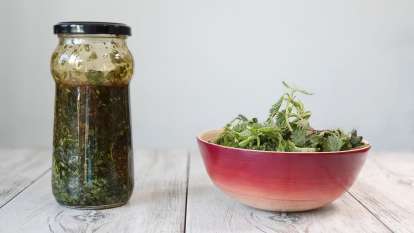
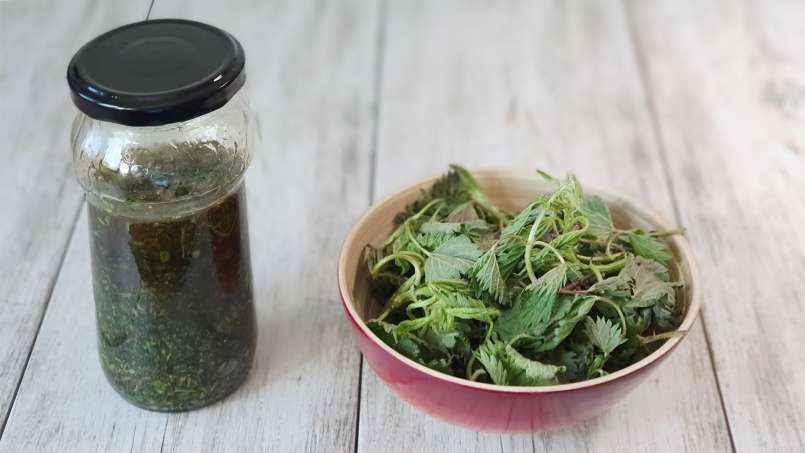
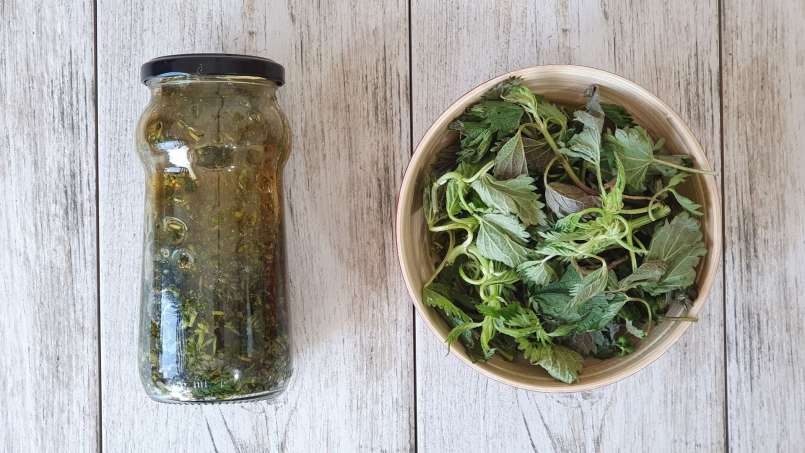
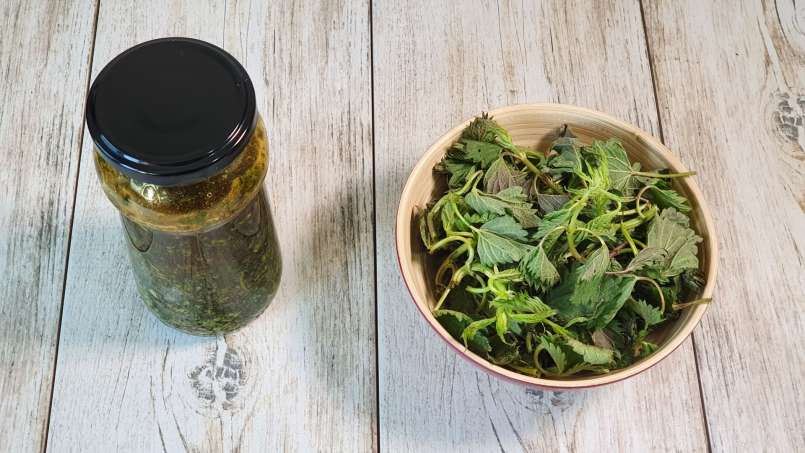
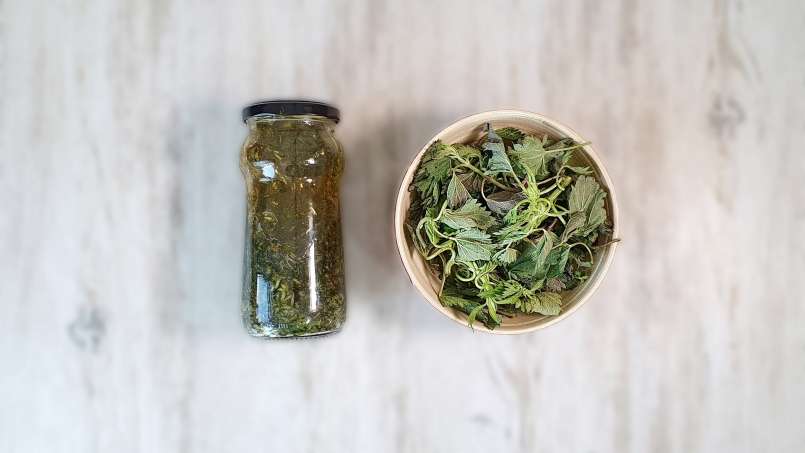
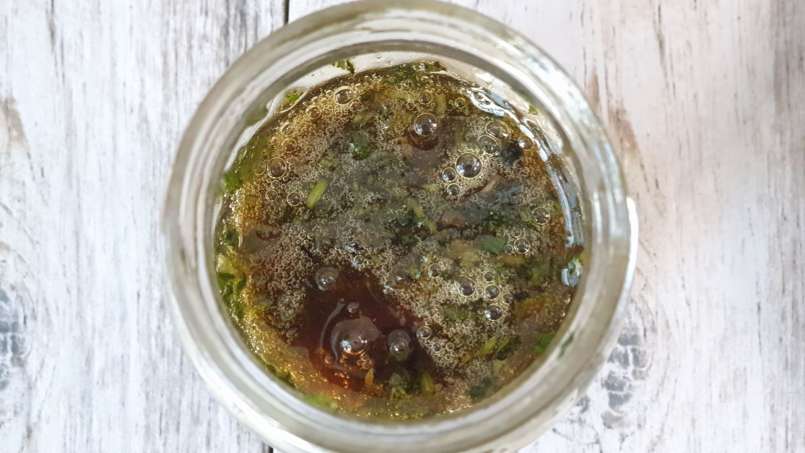
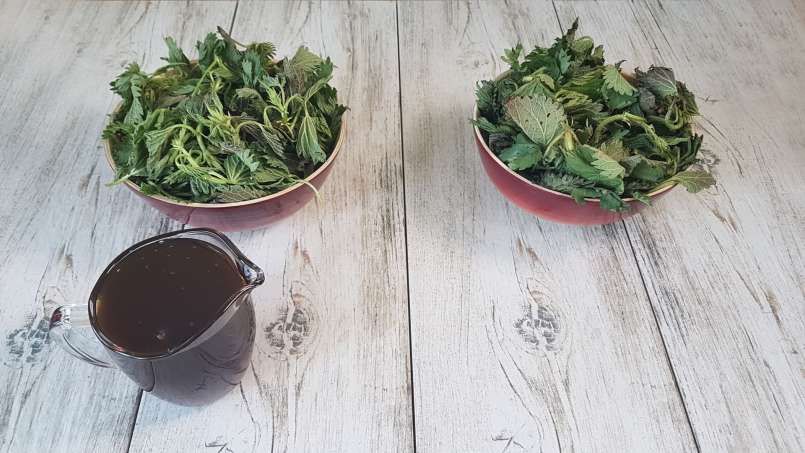
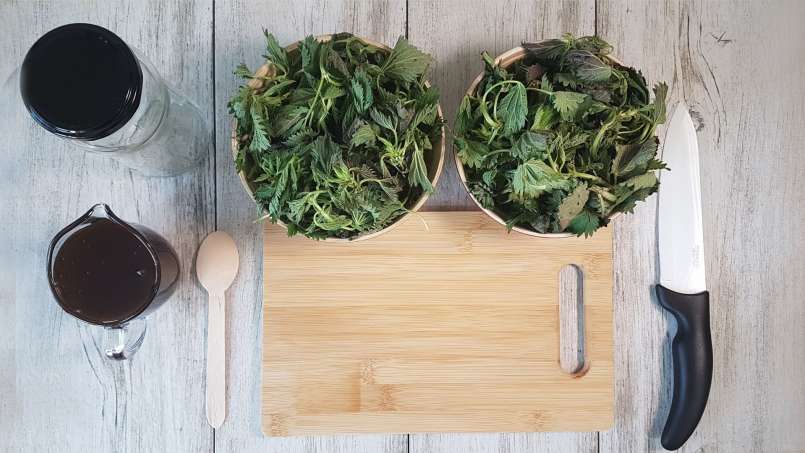
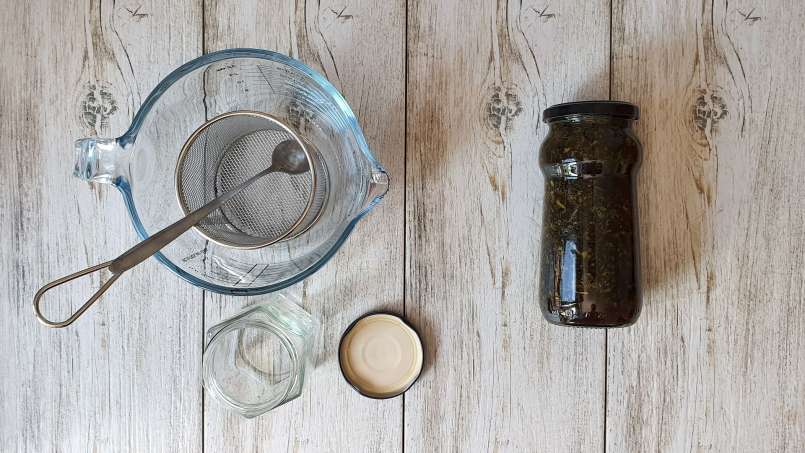
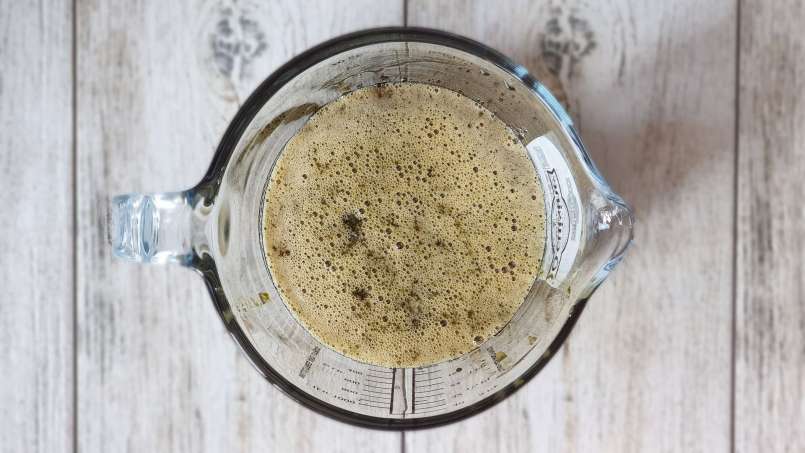
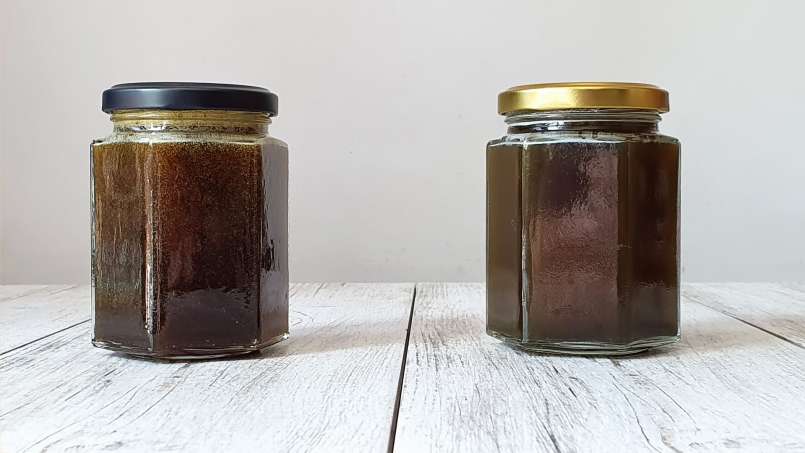
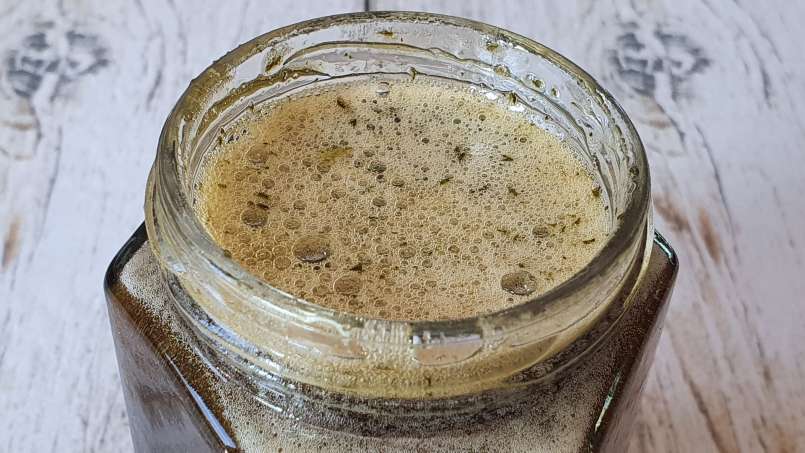
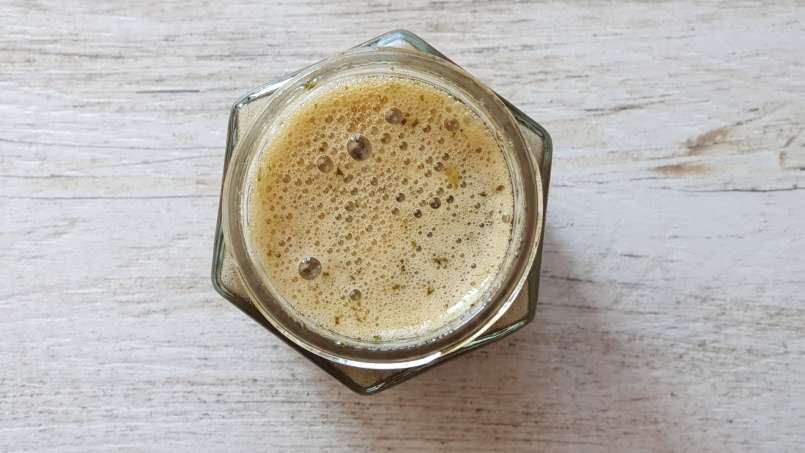
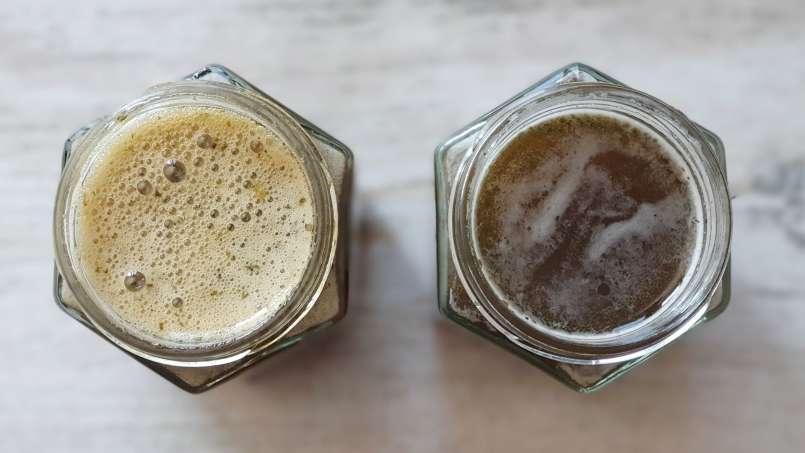
Comments